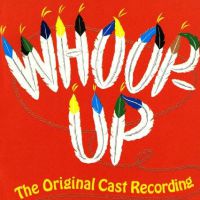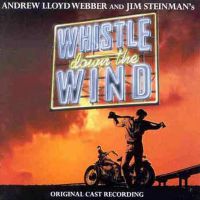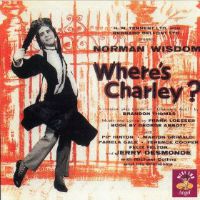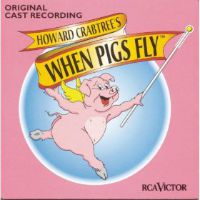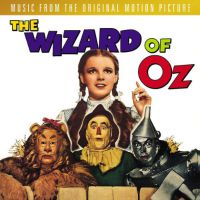 Film Soundtrack, 1939 (MGM/Rhino-Turner)
Film Soundtrack, 1939 (MGM/Rhino-Turner)  (5 / 5) Is it an overstatement to call MGM’s The Wizard of Oz the world’s most beloved film? Happily, a superb job has been done with the latest edition of the soundtrack recording of this gem, and we owe thanks to Marilee Bradford and Bradley Flanagan for doing it so neatly and completely. Many of us have fond memories of an old MGM LP of “selections from” the movie, but here we get virtually all of the music, in the best possible sound. What’s most impressive is all the musical detail that may be heard clearly for the first time. Yes, we know “Over the Rainbow” and the other great Harold Arlen-E.Y. Harburg songs performed by Judy Garland, Ray Bolger, Jack Haley, Bert Lahr, and Frank Morgan, but the background music by Herbert Stothart represents Hollywood scoring at its peak. Included on the two-CD version of the soundtrack are several other treats: multiple takes of many songs, including one of “Over the Rainbow” that comes to a premature stop with a big sneeze/cough from Garland; the song “Jitterbug,” cut from the film, but tuneful and fun to hear; and the original Buddy Ebsen recording of”If I Only Had a Heart,” made before Ebsen’s reaction to the Tin Man’s aluminum makeup forced his replacement by the far more suitable Haley. Another bonus with the two-disc set is a sumptuous booklet with rare photos and detailed notes. — Richard Barrios
(5 / 5) Is it an overstatement to call MGM’s The Wizard of Oz the world’s most beloved film? Happily, a superb job has been done with the latest edition of the soundtrack recording of this gem, and we owe thanks to Marilee Bradford and Bradley Flanagan for doing it so neatly and completely. Many of us have fond memories of an old MGM LP of “selections from” the movie, but here we get virtually all of the music, in the best possible sound. What’s most impressive is all the musical detail that may be heard clearly for the first time. Yes, we know “Over the Rainbow” and the other great Harold Arlen-E.Y. Harburg songs performed by Judy Garland, Ray Bolger, Jack Haley, Bert Lahr, and Frank Morgan, but the background music by Herbert Stothart represents Hollywood scoring at its peak. Included on the two-CD version of the soundtrack are several other treats: multiple takes of many songs, including one of “Over the Rainbow” that comes to a premature stop with a big sneeze/cough from Garland; the song “Jitterbug,” cut from the film, but tuneful and fun to hear; and the original Buddy Ebsen recording of”If I Only Had a Heart,” made before Ebsen’s reaction to the Tin Man’s aluminum makeup forced his replacement by the far more suitable Haley. Another bonus with the two-disc set is a sumptuous booklet with rare photos and detailed notes. — Richard Barrios
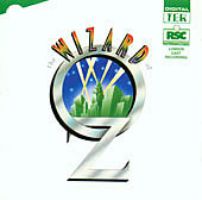 Original London Cast, 1989 (JAY)
Original London Cast, 1989 (JAY)  (2 / 5) What was more inevitable than a stage version of the extraordinarily popular MGM film The Wizard of Oz? By the 1960s, productions were cropping up everywhere; one of them even had the wonderful Margaret Hamilton reprising her definitive performance as the Wicked Witch of the West. But the most determined effort to put Oz onstage came in the 1980s, by no less a force than London’s Royal Shakespeare Company. The film’s orchestrations were recreated, its special effects adapted, and variations of this production have been performed numerous times since. The cast recording is in no way comparable to the movie soundtrack, but it’s passable. Conductor John Owen Edwards’ tempi differ from those in the movie, and while the orchestra plays well, the results are somewhat jolting. The cast varies wildly, from a sweet Dorothy (Gillian Bevan) to an undistinguished Scarecrow-Tin Man-Lion trio to a geriatric Glinda (Joyce Grant, who doubles as Aunt Em) and a literal drag of a Miss Gulch/Wicked Witch (the coyly named Bille Brown). Of course, the score itself is imperishable. — R.B.
(2 / 5) What was more inevitable than a stage version of the extraordinarily popular MGM film The Wizard of Oz? By the 1960s, productions were cropping up everywhere; one of them even had the wonderful Margaret Hamilton reprising her definitive performance as the Wicked Witch of the West. But the most determined effort to put Oz onstage came in the 1980s, by no less a force than London’s Royal Shakespeare Company. The film’s orchestrations were recreated, its special effects adapted, and variations of this production have been performed numerous times since. The cast recording is in no way comparable to the movie soundtrack, but it’s passable. Conductor John Owen Edwards’ tempi differ from those in the movie, and while the orchestra plays well, the results are somewhat jolting. The cast varies wildly, from a sweet Dorothy (Gillian Bevan) to an undistinguished Scarecrow-Tin Man-Lion trio to a geriatric Glinda (Joyce Grant, who doubles as Aunt Em) and a literal drag of a Miss Gulch/Wicked Witch (the coyly named Bille Brown). Of course, the score itself is imperishable. — R.B.
 New York Concert Cast, 1996 (Rhino-Turner)
New York Concert Cast, 1996 (Rhino-Turner)  (1 / 5) Roger Daltrey as the Tin Man? Jackson Browne as the Scarecrow? Debra Winger as Miss Gulch and the Witch? Yes indeedy, that was the casting of a televised Lincoln Center concert version of The Wizard of Oz, performed only once for charity. But this recording also gives us Nathan Lane as quite a good Cowardly Lion. Of Browne and Daltrey, it might be said that they try hard. While Winger has some fun with her devilish doings, Natalie Cole’s Glinda sounds extremely tentative. The Boys Choir of Harlem makes sweet sounds as the Munchkins, and the idea of casting Joel Grey as the Wizard was so good that it was carried forward to the Broadway musical “prequel” Wicked. Unfortunately, nothing that’s good about this recording can overcome its terminal handicap: the horrific portrayal of Dorothy by Jewel, with her unending overlay of American Idol-style swoops and gulps. Those who revere “Over the Rainbow” are officially alerted that we’re not in Kansas anymore! — R.B.
(1 / 5) Roger Daltrey as the Tin Man? Jackson Browne as the Scarecrow? Debra Winger as Miss Gulch and the Witch? Yes indeedy, that was the casting of a televised Lincoln Center concert version of The Wizard of Oz, performed only once for charity. But this recording also gives us Nathan Lane as quite a good Cowardly Lion. Of Browne and Daltrey, it might be said that they try hard. While Winger has some fun with her devilish doings, Natalie Cole’s Glinda sounds extremely tentative. The Boys Choir of Harlem makes sweet sounds as the Munchkins, and the idea of casting Joel Grey as the Wizard was so good that it was carried forward to the Broadway musical “prequel” Wicked. Unfortunately, nothing that’s good about this recording can overcome its terminal handicap: the horrific portrayal of Dorothy by Jewel, with her unending overlay of American Idol-style swoops and gulps. Those who revere “Over the Rainbow” are officially alerted that we’re not in Kansas anymore! — R.B.
 Madison Square Garden Cast, 1998 (TVT)
Madison Square Garden Cast, 1998 (TVT)  (3 / 5) This version of The Wizard of Oz was adapted from the Royal Shakespeare Company edition and an interim production by the Paper Mill Playhouse. The double role of Professor Marvel/The Wizard was taken by Mickey Rooney, who at age 78 was still a very game performer. As Miss Gulch and the Wicked Witch, Eartha Kitt has the time of her life, funneling her purring persona into this nasty pair. (Thank you, producers, for giving the bewitching Kitt the reinstated “Jitterbug” number, in which the prescient lyricist E. Y. Harburg supplied lots of “r”s to rrrrroll!) While Jessica Grové is a pleasing Dorothy and Lara Teeter a good Scarecrow, Ken Page goes a bit over the top as the Lion. Another problem is the recorded sound, reverberant and bass-ridden. This Oz may not cast the spell of the movie, but it has its own moments of magic. — R.B.
(3 / 5) This version of The Wizard of Oz was adapted from the Royal Shakespeare Company edition and an interim production by the Paper Mill Playhouse. The double role of Professor Marvel/The Wizard was taken by Mickey Rooney, who at age 78 was still a very game performer. As Miss Gulch and the Wicked Witch, Eartha Kitt has the time of her life, funneling her purring persona into this nasty pair. (Thank you, producers, for giving the bewitching Kitt the reinstated “Jitterbug” number, in which the prescient lyricist E. Y. Harburg supplied lots of “r”s to rrrrroll!) While Jessica Grové is a pleasing Dorothy and Lara Teeter a good Scarecrow, Ken Page goes a bit over the top as the Lion. Another problem is the recorded sound, reverberant and bass-ridden. This Oz may not cast the spell of the movie, but it has its own moments of magic. — R.B.
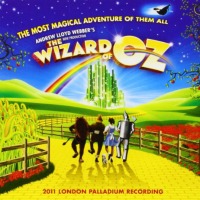 London Cast, 2011 (Verve) No stars; not recommended. If the movie posited Oz as a dream, why not a bloated stage version of The Wizard of Oz that is, in effect, a nightmare? Surely some of the impetus for this 21st century “reimagining” was the worldwide hit Wicked. Still, why take on such a cherished film, given what must be the widely held opinion — already stated here, above — that no stage production could duplicate, let alone equal, its magic or its cast? Then again, such considerations may be of lesser import to The Right Honourable Andrew, Lord Lloyd-Webber. The Wizard of the West End determined that Oz’s yellow road would benefit from some brick-gilding, which included his writing six new songs with lyrics by Tim Rice; signing the master’s own Phantom, Michael Crawford, for the title role; and casting Dorothy (Danielle Hope) by way of a televised “Over the Rainbow” talent hunt. The result opened at the London Palladium to mixed reviews, with the most praise going to the sets, costumes, and effects. Later, there would be a Toronto run and a North American tour. All involved professed their love for the original, but with synthesizer-heavy rearrangements and the unavoidable clash between 1939 and 2011 aesthetics, this show was doomed from the get-go. The offenses are many and unending: a lament for Dorothy called “Nobody Understands Me,” Miss Gulch’s original, immortal “bicycle theme” (by Herbert Stothart) being outfitted with lyrics, the deletion of “If I Were King of the Forest,” a “Red Shoe Blues” (!!) for the Witch, and much, much more. Hope is an OK Dorothy in a chirpy sort of way. Her three farmhand-turned-creature pals tend to sound alike, and Crawford manages a twee sort of authority. In summary: Remember the adage “There’s no place like home,” and stick with Garland and company. — R.B.
London Cast, 2011 (Verve) No stars; not recommended. If the movie posited Oz as a dream, why not a bloated stage version of The Wizard of Oz that is, in effect, a nightmare? Surely some of the impetus for this 21st century “reimagining” was the worldwide hit Wicked. Still, why take on such a cherished film, given what must be the widely held opinion — already stated here, above — that no stage production could duplicate, let alone equal, its magic or its cast? Then again, such considerations may be of lesser import to The Right Honourable Andrew, Lord Lloyd-Webber. The Wizard of the West End determined that Oz’s yellow road would benefit from some brick-gilding, which included his writing six new songs with lyrics by Tim Rice; signing the master’s own Phantom, Michael Crawford, for the title role; and casting Dorothy (Danielle Hope) by way of a televised “Over the Rainbow” talent hunt. The result opened at the London Palladium to mixed reviews, with the most praise going to the sets, costumes, and effects. Later, there would be a Toronto run and a North American tour. All involved professed their love for the original, but with synthesizer-heavy rearrangements and the unavoidable clash between 1939 and 2011 aesthetics, this show was doomed from the get-go. The offenses are many and unending: a lament for Dorothy called “Nobody Understands Me,” Miss Gulch’s original, immortal “bicycle theme” (by Herbert Stothart) being outfitted with lyrics, the deletion of “If I Were King of the Forest,” a “Red Shoe Blues” (!!) for the Witch, and much, much more. Hope is an OK Dorothy in a chirpy sort of way. Her three farmhand-turned-creature pals tend to sound alike, and Crawford manages a twee sort of authority. In summary: Remember the adage “There’s no place like home,” and stick with Garland and company. — R.B.


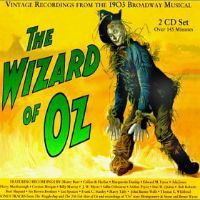
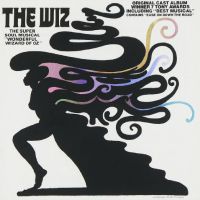
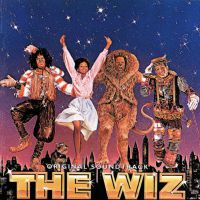
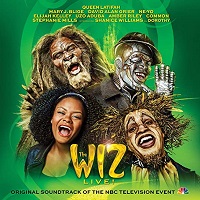
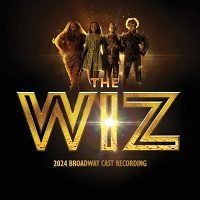
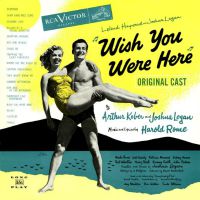
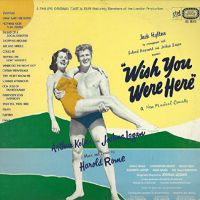
 (4 / 5) London cast recordings of Broadway hits are often inferior to the originals, but this one bests its American cousin on several counts. The technical quality is superb, once you get past an echo-y overture that seems like it was lifted directly from the Broadway album. Cyril Ornadel’s musical direction is livelier than Jay Blackton’s. The musical program is almost the same, although “Goodbye, Love” is replaced by “Nothing Nicer Than People” to make the heroine more sympathetic. It’s fun to note the slight lyrical revisions that were made to suit West End audiences, such as changing “the BMT” to “the workmen’s train.” All of the Brit principals affect New York accents quite nicely, with Christopher Hewett outstanding as the unlikeliest wolf in the history of the Catskills. The rest of the London cast is inversely talented as compared to the New York company: Where Jack Cassidy was the vocal muscle of the original, his London counterpart, Bruce Trent, is uninteresting (and requires a downward modulation in “They Won’t Know Me”); but Shani Wallis is pert and more vocally secure than Sheila Bond as Fay, and Elizabeth Larner’s Teddy has the edge on Patricia Marand’s. They all sound like they’re having a whale of a summer. — M.M.
(4 / 5) London cast recordings of Broadway hits are often inferior to the originals, but this one bests its American cousin on several counts. The technical quality is superb, once you get past an echo-y overture that seems like it was lifted directly from the Broadway album. Cyril Ornadel’s musical direction is livelier than Jay Blackton’s. The musical program is almost the same, although “Goodbye, Love” is replaced by “Nothing Nicer Than People” to make the heroine more sympathetic. It’s fun to note the slight lyrical revisions that were made to suit West End audiences, such as changing “the BMT” to “the workmen’s train.” All of the Brit principals affect New York accents quite nicely, with Christopher Hewett outstanding as the unlikeliest wolf in the history of the Catskills. The rest of the London cast is inversely talented as compared to the New York company: Where Jack Cassidy was the vocal muscle of the original, his London counterpart, Bruce Trent, is uninteresting (and requires a downward modulation in “They Won’t Know Me”); but Shani Wallis is pert and more vocally secure than Sheila Bond as Fay, and Elizabeth Larner’s Teddy has the edge on Patricia Marand’s. They all sound like they’re having a whale of a summer. — M.M.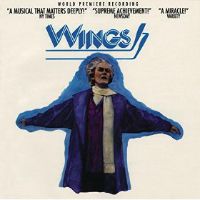
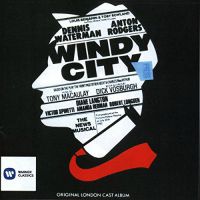
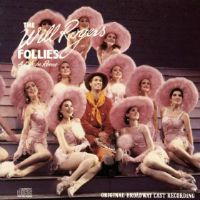
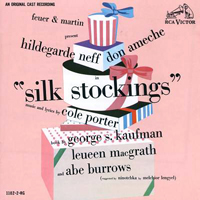
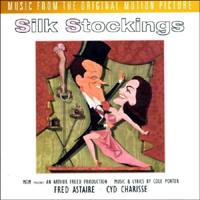
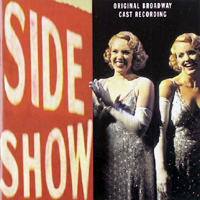
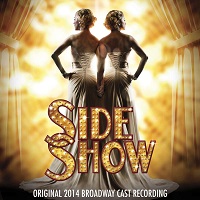


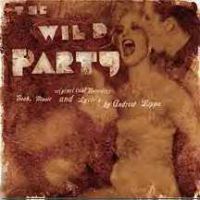
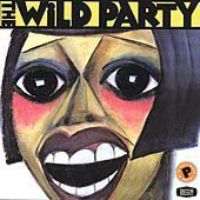
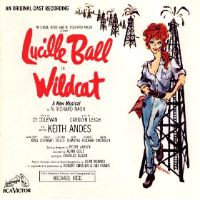

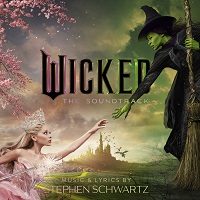
 (3.5 / 5) With its extraordinary level of hype and an unprecedented two-part release, the motion picture adaptation of Stephen Schwartz and Winnie Holzman’s Wicked had a lot to live up to. But fans of the stage musical can breathe a sigh of relief: Wicked Part One is two hours and 40 minutes of nonstop entertainment. Much of its charm comes from its plethora of visual effects, so in that sense, this version is better seen than heard. However, credit where credit is due: The casting of Tony Award winner Cynthia Erivo as Elphaba ensured that the character’s songs would really get the chance to fly. As heard in the movie and on the soundtrack album, Erivo’s “Defying Gravity” knocked this reviewer’s socks off, and her rendition of “I’m Not That Girl” is softly thrilling. Part One of Wicked remains faithful to the stage musical by including the entire score heard in the show’s first act, including a few songs that might have been skipped, such as “A Sentimental Man” and “Something Bad.” The latter is, in fact, quite effective in a deeply felt performance by Peter Dinklage as Doctor Dillamond. If Jeff Goldblum as The Wizard and Michelle Yeoh as Madame Morrible aren’t quite up to their tasks vocally, their performances do not significantly hinder the listening experience. While Erivo’s Elphaba is staggeringly original, casting aside the inevitable ghost of Idina Menzel (who makes a charming cameo appearance here), Ariana Grande as Glinda finds the perfect balance between echoes of Kristin Chenoweth (also given a cameo in the film and on the album) and her own unique charm and humor; one can only hope that this performance is the first of many starring roles in musicals for her. Jonathan Bailey, who began his career as a West End musical theater actor, is smooth as butter in “Dancing Through Life,” even if the song’s extended instrumental sequences only really make sense with the movie’s visuals. This album does suffer from some of the aural artificiality heard in many soundtracks, but the orchestrations are lush, notably in the “Ozdust Duet.” While the recording lacks some of the raw power present on the original Broadway cast album, it’s an excellent representation of the score and a consistently delightful listen. — Charles Kirsch
(3.5 / 5) With its extraordinary level of hype and an unprecedented two-part release, the motion picture adaptation of Stephen Schwartz and Winnie Holzman’s Wicked had a lot to live up to. But fans of the stage musical can breathe a sigh of relief: Wicked Part One is two hours and 40 minutes of nonstop entertainment. Much of its charm comes from its plethora of visual effects, so in that sense, this version is better seen than heard. However, credit where credit is due: The casting of Tony Award winner Cynthia Erivo as Elphaba ensured that the character’s songs would really get the chance to fly. As heard in the movie and on the soundtrack album, Erivo’s “Defying Gravity” knocked this reviewer’s socks off, and her rendition of “I’m Not That Girl” is softly thrilling. Part One of Wicked remains faithful to the stage musical by including the entire score heard in the show’s first act, including a few songs that might have been skipped, such as “A Sentimental Man” and “Something Bad.” The latter is, in fact, quite effective in a deeply felt performance by Peter Dinklage as Doctor Dillamond. If Jeff Goldblum as The Wizard and Michelle Yeoh as Madame Morrible aren’t quite up to their tasks vocally, their performances do not significantly hinder the listening experience. While Erivo’s Elphaba is staggeringly original, casting aside the inevitable ghost of Idina Menzel (who makes a charming cameo appearance here), Ariana Grande as Glinda finds the perfect balance between echoes of Kristin Chenoweth (also given a cameo in the film and on the album) and her own unique charm and humor; one can only hope that this performance is the first of many starring roles in musicals for her. Jonathan Bailey, who began his career as a West End musical theater actor, is smooth as butter in “Dancing Through Life,” even if the song’s extended instrumental sequences only really make sense with the movie’s visuals. This album does suffer from some of the aural artificiality heard in many soundtracks, but the orchestrations are lush, notably in the “Ozdust Duet.” While the recording lacks some of the raw power present on the original Broadway cast album, it’s an excellent representation of the score and a consistently delightful listen. — Charles Kirsch